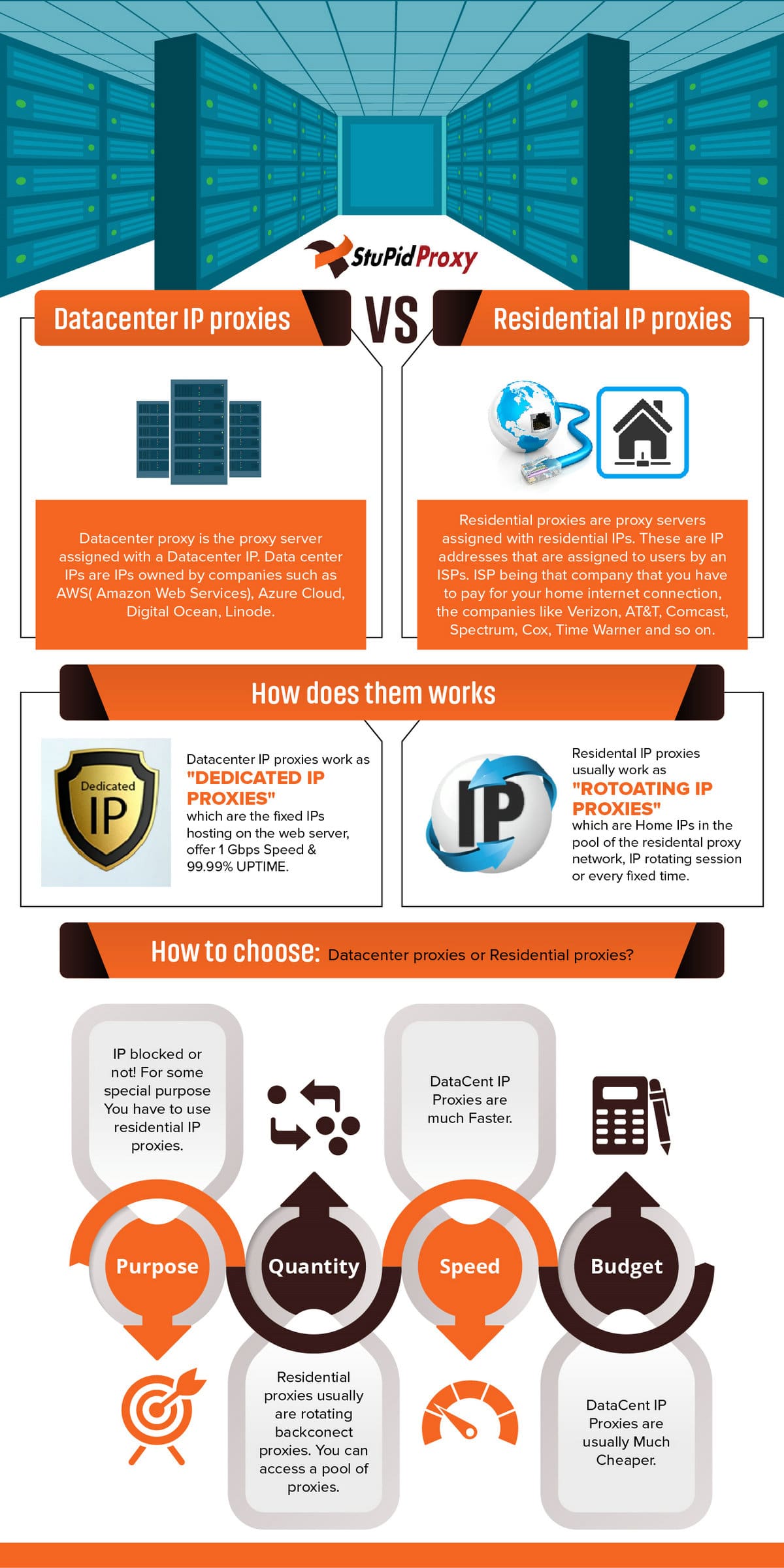A recent trend appears to be people looking for residential proxies or residential IPs. On a couple of proxy related forums, I frequent there has been a thread about these kinds of proxies almost every week. While I can understand why someone may want an IP that looks like it comes from an ISP or home address, the sad truth is that anyone who claims they can provide you with IPs that look like they come from someone’s house is breaking the law.
What are residential proxies? Most proxies, elite or whatever kind you may use, show that they are run by some company or located in a data centre. This kind of information can be seen when you visit www.whatismyipaddress.com and check out the publically available information stored about your IP. So, most proxies will usually say “Comtek Hosting” or something like that.

Now, if you visit the same site using your home PC Internet connection, then you’ll see something like “ABC Internet” as the ISP. An IP showing up as coming from a hosting company or data center is NOT a bad thing. However, what it does tell you is that the IP is a corporate IP. It most likely is not being used by Joe Blow in his house. This is why people want residential IPs. They look like they come from some ISP and aren’t a business or corporate IP.

You can learn the difference between Datacenter IP Proxies and Residential IP Proxies from stupidproxy.com
Now that you know the difference between residential and non-residential IPs, it’s easy to see why you can’t set them up on your elite proxy and anyone who claims they can provide them is lying or breaking the law.
Residential IPs come from home computers that has a “normal” Internet connection. By normal I mean they use Comcast or some other ISP and connect to the Internet by cable or ADSL modems. You can’t get these kinds of connections in data centres.
The only way to get this type of connection is to actually use someone’s home computer. Now, most people wouldn’t let you walk in their front door and setup a dedicated server in their house that uses their Internet connection. That’s why you can’t set these kinds of proxies up yourself. There is physically no way you can gain access to someone’s house and connection.
So how are people selling or providing so-called residential proxies or IPs? There are two reasons.
First, they are lying. (learn residential facts here.)
There is a way to trick or spoof information about IPs. Businesses should NOT be doing this and it is easy to see if they are trying to pull the wool over your eyes by doing a simple “ping” test.
If someone claims to have a residential proxy in California, then all you have to do is go to the command window in Windows and type “ping 1.1.1.1”. Replace 1.1.1.1 with the IP you want to ping. If you are in Los Angeles, then the information you see when you ping an IP in California will show up. This may sound a bit technical and confusing to some, but anyone with a sound understanding of ping will know what I am talking about.
The second, and what I believe to be the most common, way people provide residential IPs is via a botnet.
A botnet is basically a bunch of computers that have been infected with a trojan. This trojan gives someone control over the computer. Obviously this isn’t legal. How does it happen? People usually download something from the Internet that is infected. When they run or open a file their computer is infected.
A backdoor is installed on their home computer that allows someone to control their computer. This is highly illegal and that’s why I say that anyone who claims to offer residential IPs is either lying or breaking the law.
They essentially turn someone’s home computer into a proxy server without their consent. The person with the infected computer has no idea that their Internet connection and IP are being used by other people. An example of this was all over the Internet as it was discovered that Hola was actually sharing and selling Internet connections of anyone that used the plugin (read more here at The Verge).

So residential IPs or proxies are pretty much a myth. You can’t set them up yourself and renting or buying them from top residential proxies providers usually means you are breaking the law.
However, I see no reason why people want these kinds of proxies in the first place. If you setup your own elite proxy and do it properly, then it is no different from using your home computer to surf the Internet.